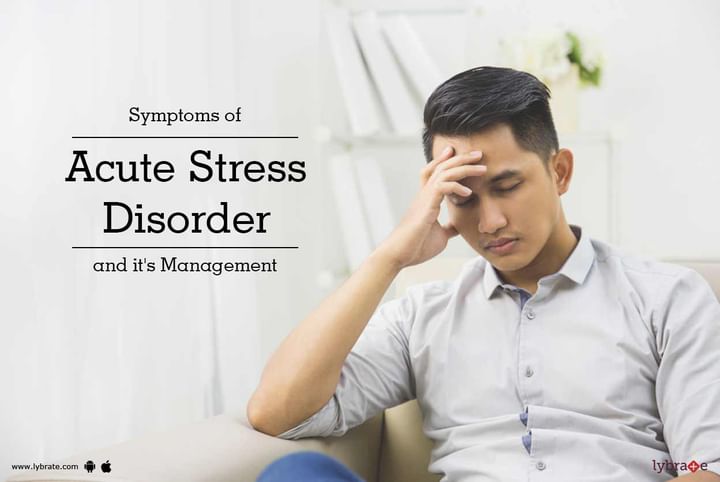Symptoms of Acute Stress Disorder and it's Management
What is Acute Stress Disorder
Acute stress reaction usually happens when some stressful events occur. Acute usually indicates that the symptoms occur quickly and do not last for a long time. Symptoms, such as anxiety and stress occur when exposed to stressful events. It is believed that acute stress disorder occurs after unexpected crisis like traumatic events, serious accidents, domestic violence, sexual assaults or sudden bereavement. Acute stress reactions are commonly seen in people who have experienced major disasters or terrorist incidents.
Symptoms of Acute Stress Reaction
Symptoms of the condition develop very quickly, within minutes to hours in response to a stressful condition. Some of the symptoms are:
- Anxiety, mood changes, emotional trauma (ups and downs), poor concentration and sleep, irritability and the desire to be alone
- Unpleasant recurrent dreams
- Avoiding situations and people who may cause anxiety and stress
- Emotionally numb
- Nausea, palpitations, headaches, abdominal pain, difficulty in breathing and chest pain are usually caused by the stress hormones like epinephrine.
Management of Acute Stress Disorder
Generally treatment is not required as the symptoms go when the stressful episode is over. Talking to family and friends or understanding the symptoms is helpful. Some people might experience extended symptoms. The following can be done:
Cognitive Behavioral Therapy (CBT): This is the therapy where a person can talk to an experienced therapist to understand the patterns and the triggers that charge the problem. The aim of the therapist is to change the way a person thinks and help him avoid the thoughts and be more realistic and calm. Usually when CBT is used for acute stress disorder patients then it is termed as trauma focused CBT.
Counselling: This is usually done when the symptoms are more severe or persistent. It is helpful as it helps to explore the way to deal with the stress and its symptoms. Psychiatrists help by counselling the people and also there are many online resources, which might be helpful. If you wish to discuss about any specific problem, you can consult a psychiatrist and ask a free question.



+1.svg)
